During the Golden Age of Science Fiction, sci-fi experienced a boom in popularity with readers and critics alike. During this period, which many believe lasted from the mid-1930s to the early-1960s, some of the most influential, culturally significant, and socially conscious novels of the past century were written.
Without the works of this era, sci-fi as we know it would simply not exist. Here are 11 Golden Age of Science Fiction books that are still influential and compelling today.
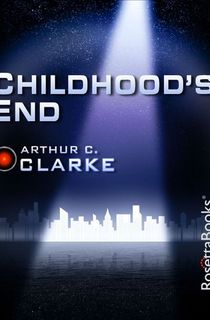
Childhood's End
Alien invasions tend to signal bad things in science-fiction, but in Arthur C. Clarke's 1953 novel Childhood's End, the arrival of an extraterrestrial colonizing force proves insidious in much more unexpected ways.
The aliens, who forebodingly call themselves the Overlords, claim that they plan to usher in a new and much-needed era of peace for humanity following the chaos of World War Two and the unfolding squabbles of the Cold War. The life they create seems positively utopian, but it comes at a greater cost than some humans may be willing to accept.
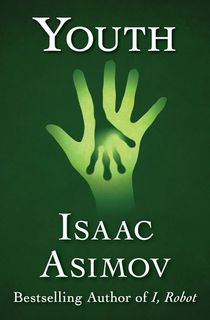
Youth
It would take hundreds of pages to fully examine the work and influence of Isaac Asimov, the man behind modern science fiction's depiction of robotics and the attached debates regarding autonomy and free thought.
Any number of his works could go here, but we've gone with The Martian Way collection of novellas and the standout 1952 story Youth, which focuses on the son of an astronomer who encounters two strange animals that turn out to be aliens.
The narrative surprises that unfold over such a short number of pages highlights the kind of storytelling that can only be achieved with the written word.
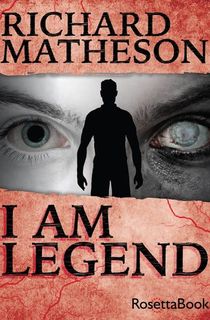
I Am Legend
Vampire fiction had existed for many decades before Richard Matheson decided to give it a shot in 1954, but it was he who blended those familiar horror tropes with the more analytical eye of science fiction.
I Am Legend imagines the lonely plight of the last man on earth after a pandemic has turned the world’s population into a pack of nocturnal bloodsuckers (the word “vampire” is never used in the novel.) This is the story of a deeply lonely man who comes to realize that his noble crusade is anything but that, and Matheson excels in depicting the protagonist's smothering isolation.
I Am Legend inspired a number of adaptations, good and terrible, but its influence spreads far wider than that. Indeed, Matheson may have just as major a claim to the vampire genre as Bram Stoker.
RELATED: 19 Bloody Good Vampire Books
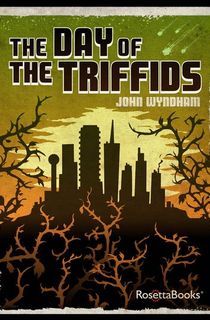
The Day of the Triffids
John Wyndham wrote his fair share of iconic stories, including The Midwich Cuckoos and The Kraken Wakes, but The Day of the Triffids is the one that looms overhead in the most dramatic manner possible.
What should seem rather silly on the page—a man-eating species of alien plants tries to take over Earth—is truly unnerving in execution. The most gripping part of the story comes in how Wyndham depicts the all-too-plausible crumbling of society, in large part influenced by his own history as a firewatcher during the Blitz.
The Triffids themselves are a writerly masterclass in turning something so seemingly benign into the most petrifying and alien thing imaginable.
RELATED: Flesh-Eating Plants Take Over the World in The Day of the Triffids

A Canticle for Leibowitz
Communication is a key theme in science fiction, and nowhere is that more evident than in A Canticle for Leibowitz.
Set over thousands of years, Walter M. Miller Jr. depicts the attempts made by an order of monks to preserve the last remnants of humanity's intellectual achievements after a worldwide backlash leads to a movement called the Simplification.
These monks faithfully preserve documents they cannot understand — often things as simple as grocery lists — because they hope that one day the world will once again be ready to embrace the immense beauty and creativity that past generations had to offer.
A Canticle for Leibowitz also offers a striking examination of the separation and battles between church and state, and how such things evolve over centuries of anger and confusion.
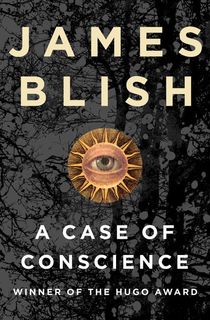
A Case of Conscience
The Jesuit priest Father Ramon Ruiz-Sanchez is one of a quartet of scientists tasked with visiting the planet Lithia and studying its population with the hopes of future human colonization. There, they discover that the Lithians are peaceful and rational beings, and have developed a seemingly innate sense of morality, even though they are devoid of faith.
This troubles Father Ruiz-Sanchez, since the existence of these creatures directly contradicts his Catholic teachings. So, of course, he believes that the Devil is at work. Things quickly go haywire from there. Blish's 1959 novel is provocative even by today's standards, and wades into seriously prickly territory.
.jpg?w=640)
The Martian Chronicles
The chances are that we could fill this entire list exclusively with the works of Ray Bradbury. Thanks to stories like Fahrenheit 451, The Illustrated Man, and I Sing the Body Electric, Bradbury earned the title of "the writer most responsible for bringing modern science fiction into the literary mainstream" from the New York Times.
Comprised of various short stories, 1950's The Martian Chronicles explored the long-term impact of an American settlement on Mars following the planet's devastation by nuclear war, and how the indigenous Martian race was impacted by it. Bradbury's scope is immeasurable, as is his understanding of issues as complex as the military industrial complex, colonialism, racism, and censorship.

1984
1984's impact has been so seismic that it’s tough to imagine a world without it. George Orwell’s 1949 work was always deeply political and frighteningly prescient, and the devil is in the simplicity of it.
Orwell perfectly captures how quickly the horrifying can become mundane, whether it’s the total bastardizing of basic language to suit a totalitarian dictator’s whims, or the punishments of Room 101. The rhetoric of 1984 is now part of our daily lives, which may be the most potent proof we have of Orwell’s genius.
RELATED: 9 Freaky Predictions from Dystopian Novels That Have Come True

The Sword of Rhiannon
The Queen of Space Opera, multi-award–winning writer Leigh Brackett may best be known today for her screenwriting on very un-sci-fi films like The Big Sleep and Rio Bravo. However, she was the first woman shortlisted for the Hugo Award, and works like 1953's The Sword of Rhiannon remain beloved among SFF fans to this day.
Brackett's work often verged as much into fantasy as it did science fiction, with sword fights on Mars, noblewomen on quests, and deeply romantic visions of alien kingdoms.

Starship Troopers
A military sci-fi classic, 1959's Starship Troopers follows Juan Rico, who enlists in the Federal Service and eventually sees combat with spider-like aliens known as Bugs.
Heinlein's classic won the Hugo Award, envisioned mecha technology, and reshaped the tradition of military sci-fi. It also inspired a 1997 movie of the same name.
This post is sponsored by Open Road Media. Thank you for supporting our partners, who make it possible for The Portalist to celebrate the sci-fi and fantasy stories you love.


.jpg?w=640)


